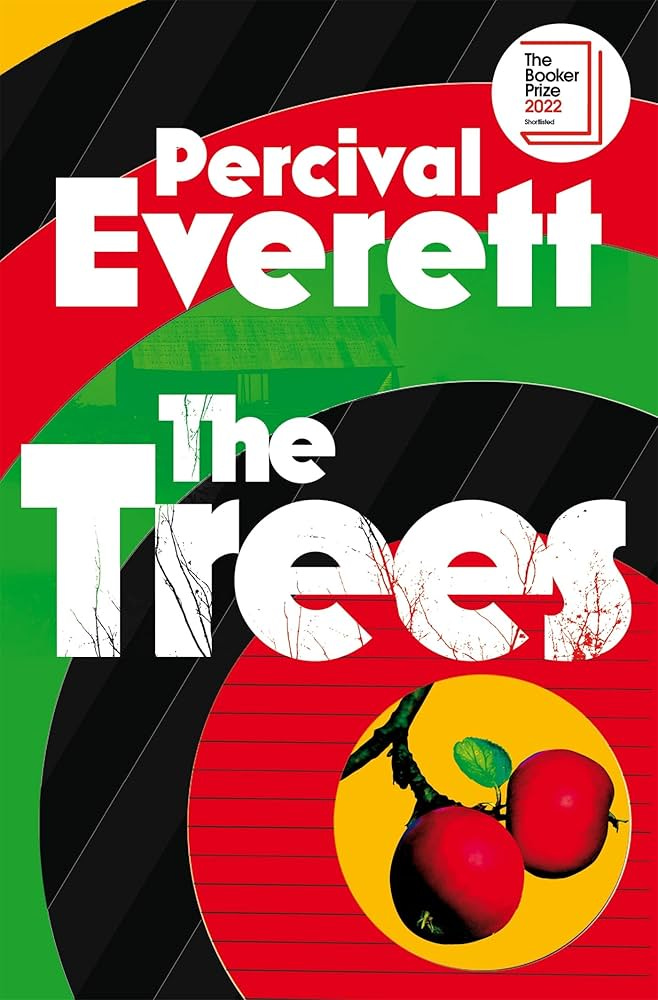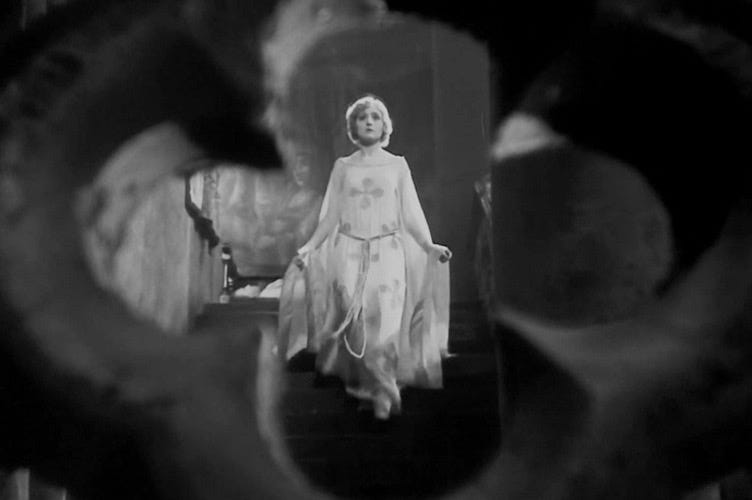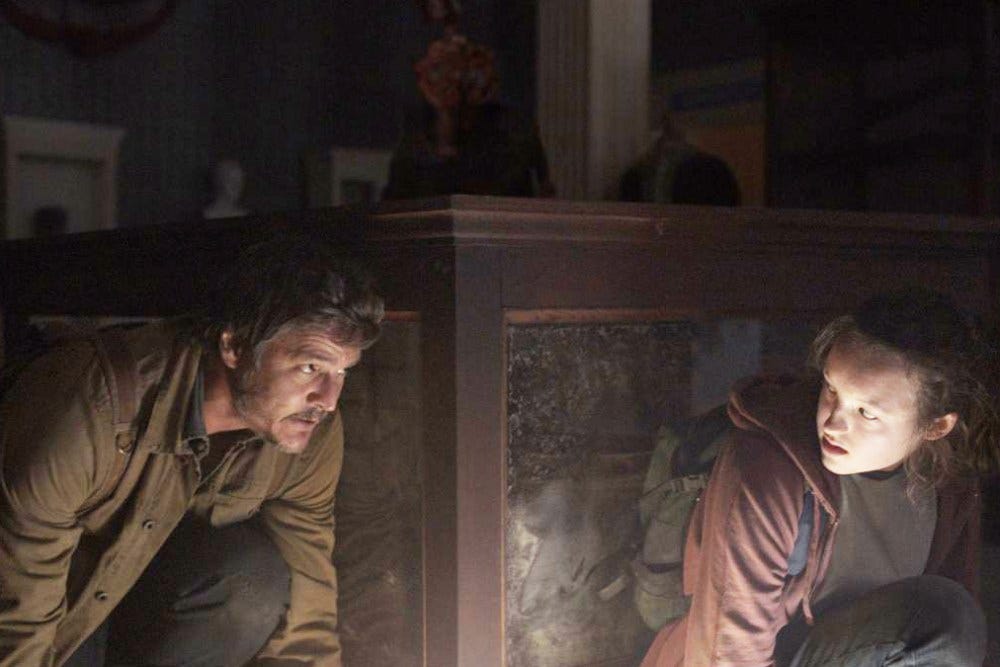I’ve never been a horror fan, but like a car crash, I can’t look away from apocalyptic stories. The Last of Us, HBO’s fungal-zombie saga, is no exception. It's great TV, packed with drama, heart, adventure, and plenty of jump scares. But what bugs me is its underlying message that without civilisation, humanity will devolve into ruthless individualism and violence.
Real life shows exactly the opposite. When disasters like tsunamis, wars, and floods strike people actually come together. They share resources, helping each other rebuild. But The Last of Us, like most zombie stories, pushes this paranoid fantasy where everyone's a threat, guns are the answer, and survival is a one-person mission.
Don't get me wrong, I'm enjoying the show. But I can't ignore how zombie apocalypse stories promote this extreme individualism and distrust of others. It’s even a bit eugenic. And here's the thing, these ideas didn't come from nowhere. They're rooted in the genre's racist beginnings.
Zombie origins
The word "zombi" probably comes from "nzambi," a Congolese term meaning "spirit of the dead." Enslaved Africans brought this concept to Haiti, where it mixed with Taíno beliefs and Christianity to form Vodou (a real religion and not the fake "voodoo" Hollywood shows). In Haitian Vodou, a zombi isn't some brain-eating monster. It's a person whose soul has been stolen, leaving their body a mindless slave.
This wasn't just folklore, it was psychological warfare. Plantation owners used the threat of zombification to stop enslaved people from killing themselves (their way to rebel and have their souls go back to Africa). The idea was that even if you die to escape, a bokor (sorcerer) could trap your soul, forcing you to keep working forever as a living dead.
The zombi represented the ultimate oppression: robbed of free will, memory, even humanity, doomed to endless labor. It's no accident that these stories came from Haiti, home to history's only successful independence slave revolt. The zombie myth was then a mix of white colonists' deepest fears: what if the enslaved rised up, and what if they use zombification against us? What if they do to us what we've done to them?
Zombies in Hollywood
The zombie entered mainstream US culture in 1929 with William Seabrook's The Magic Island, which sensationalised Haitian Vodou. His descriptions of mind-controlled zombies inspired many stories of mind control and are thought to have led to White Zombie (1932), the first zombie movie.
True to its title, the White Zombie showed white people being turned into zombies by a Haitian "voodoo master." The film played on racist fears, portraying Vodou as black magic and white bodies as vulnerable to exotic threats. This set the template. Zombies became walking symbols of cultural anxiety. They personified the fear of the "other," loss of control, and colonial guilt repackaged as horror.
George Romero completely changed zombie stories with Night of the Living Dead (1968). His zombies weren't Vodou slaves but flesh-eating monsters. It marked the separation between zombies possessed and controlled by others and zombies who weren’t. Yet, race still lurks beneath the surface. The film's black hero, Ben, survives the first night of a zombie apocalypse only to be mistaken for a zombie and shot by white rescuers the next morning. Romero denied intentional symbolism or connection to the Civil Rights movement that was happening at the time. However, the message was clear: in a world where the "other" is monstrous, who gets to decide who's human?
From being controlled by a master, to an uncontrolled mass
More recently, 28 Days Later (2002) introduced fast zombies, mirroring society’s obsession with speed and rapid change. A shift that dominates modern zombie stories, from World War Z to The Last of Us. The fast-moving zombie mirrors society’s seemingly increasing approach toward postmodern speed culture and accelerated capitalism, and reflects a new fear altogether — that of rapid social change.
As the zombie genre has progressed beyond the focus on the possession narrative, it has begun to more directly reflect a preoccupation with the risks of the modern world. Fears of individual zombie possession have been replaced by a focus on enormous hordes of nameless, faceless zombies chasing, infecting, and transforming the living into a de-individualized, undead multitude.
Threats of zombie infection are now global. In contemporary narratives, zombie plagues have emerged as a consequence of the fallout from the uncertainties of modernity. The cause of the zombie pandemic is usually a human catastrophe or at least, human negligence. Fast zombies mirror panic over immigration, pandemics and the demise of those disposed of in general. The zombie horde represents western society's deepest fear: the many overpowering the few.
This fear isn’t abstract. It is tied to real-world prejudices. Don't we hear around social media and the media calling the disabled "parasites," the poor "lazy hordes," and immigrants "invading" Western countries? The zombie story takes these dehumanizing myths literally, transforming marginalized people into literal monsters. Even worse, they justify violence against them. When survivors mow down zombies, we should cheer without ever considering that these creatures were once humans. Humans who weren’t “strong enough” or “prepared” to face whatever disease or infection caused the given zombie apocalypse.
In that way, zombie narratives often preach a brutal Darwinism. The "strong" survive—usually armed, able-bodied, and emotionally detached. The weak (children, the elderly, the disabled) die first. This isn’t just storytelling; it’s eugenicist logic. Something quite present on the Survivalist movement itself.
How to do zombie stories
Zombies colonial origins and problematic undertones is what makes Percival Everett's The Trees so refreshing. He flips the script, making zombies the victims of lynching who return for justice. With that, he exposes black people's treatment, especially in the south of the US and how genocidal lynching has been for the past 300+ years. It's a dark comedy that exposes US's racist history while playing on white fears of black retribution and uprising. The same fears that birthed the zombie myth.
In the novel, two detectives and an FBI agent investigate a series of murders in which a white and black corpse are found together. This investigation leads them to a weird out of this world revenge plot. Everett employs a lot of comedy and brilliantly delivers a book that is not self-righteous but is intelligent satire.
Zombie stories keep evolving because they're great for social commentary. Whether addressing racial inequality, class struggle, consumer culture, or global health crises, zombie stories continue to evolve while carrying the weight of their complex historical origins.
The Last of Us actually has moments where it remembers the infected were once human. That's the tension at the heart of the genre: Are zombies people who deserve compassion, or monsters we can kill guilt-free?
Modern zombie media still wrestles with power, control, and social collapse. Often while accidentally repeating its racist origins. But some creators are finally confronting this history, using zombies to challenge prejudices rather than reinforce them. The best zombie stories make us question who really counts as humans, and why we're so quick to treat certain people as monsters.
The Trees by Percival Everett
In the rural town of Money, Mississippi, a string of brutal murders draws the attention of two detectives from the Mississippi Bureau of Investigation and an FBI agent. But when they arrive, they’re met with hostility from the local sheriff, his deputy, the coroner, and a town steeped in racism.
This, they anticipated. What they didn’t expect was the second body at each crime scene, a man bearing an uncanny resemblance to Emmett Till, the Black teenager lynched in the same town sixty-five years before.
As copycat killings erupt across the nation, the detectives’ murder case unravels into something more unexpected and bit more uncanny.
White Zombie (1932)
Watch the original Dracula (Bela Lugosi) wield his sinister "zombie grip" to bend beautiful women to his will in White Zombie (1932), the first full-length zombie film ever made.
When a naive honeymooning couple stumbles into the clutches of Haiti’s most feared voodoo master, their romantic getaway becomes a waking nightmare.
Directed by Victor Halperin with eerie, fog-drenched atmosphere, this Pre-Code horror movie chewed up Universal’s old Dracula and Frankenstein sets —courtesy of genius scavenger-artist Ralph Berger — to create something even more uncanny.
The Last of Us (HBO Max)
The Last of Us follows Joel and Ellie through a world destroyed in mere days when the cordyceps fungus leaped to humans, turning the infected into mindless hosts. Civilisation collapsed under the plague, leaving behind only ruins and echoes of what was.
Twenty years later, the survivors walk around through the carcasses of cities, haunted by memories of the past. HBO’s dystopian epic is filled with violence with clashes between the living and the infected, and worse, between the living themselves. But the true heart of the story lies in loss: of homes, of loved ones, of futures that can never be reclaimed. These characters are more than survivors, they’re ghosts of a dead world, carrying the unbearable weight of all that’s gone.












Great breakdown of race and zombies! I also hate the Lord of the Flies approach in zombie narratives and most apocalyptic narratives in general. You're absolutely right that when shit breaks down, people actually tend to go the opposite direction--they help each other and form community. It's almost as if what we call "civilization" (or, you know, capitalism) is designed to PREVENT us from forming community and helping each other! Also very invested in having us believe that in the absence of that civilization (aka capitalism) there would be nothing but chaos. But maybe what's on the other side of civilization is actually something much better. How about a zombie movie where we form alliances with the zombies against the real oppressors!
I added The Trees to my reading list it sounds super interesting. Your entire post was an amazing read. I had no idea about the origins of zombies.
I'm also not a big fan of horror but there is something different about post apocalyptic shows and stories. About how it usually tells the human story of survivors. I always thought The Last of Us is just a story about people finding each other and fried and vengeance on a background of zombie apocalypse. But it could really be set in any other settings and still be the same story. Although the zombies do add something different.